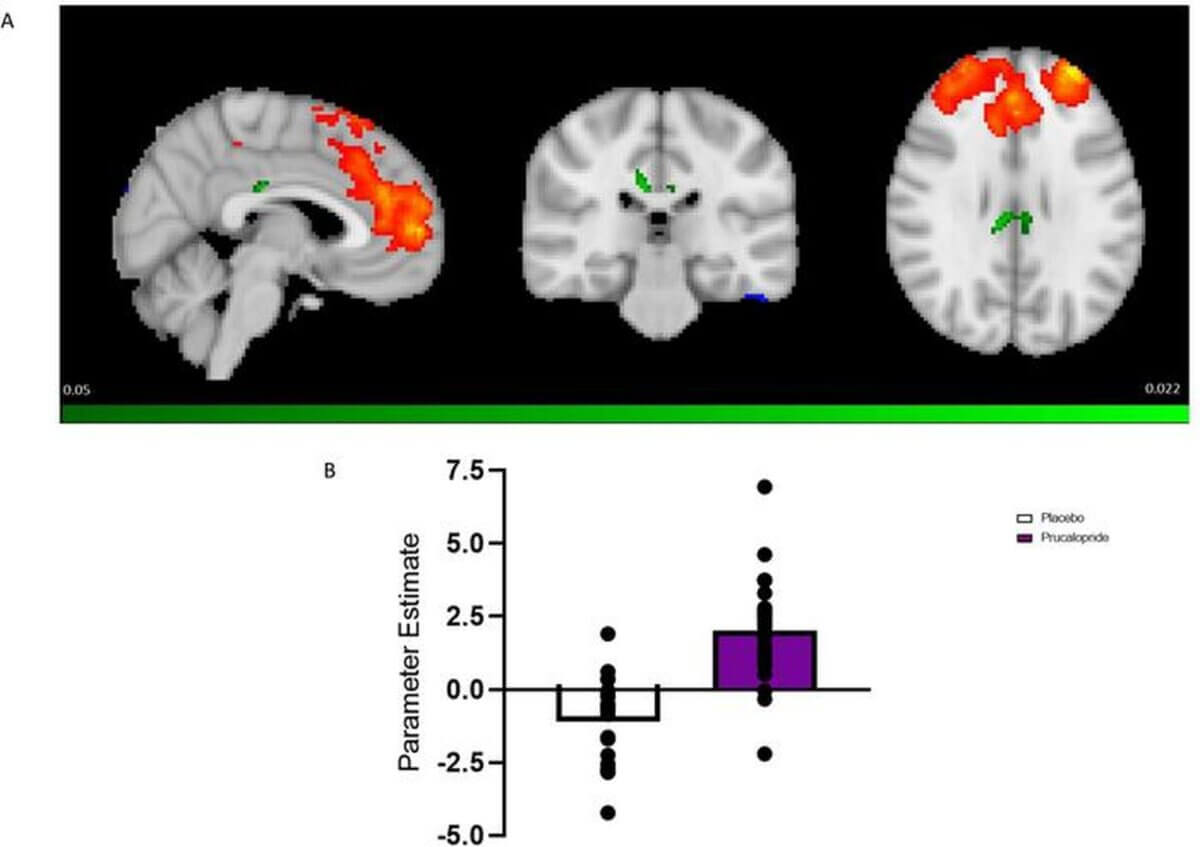PHILADELPHIA — Mood disorders and other psychiatric conditions often come with cognitive impairments that can be debilitating. While current treatments are limited, recent studies have shown that drugs targeting serotonin receptors, such as the laxative prucalopride, may hold promise in alleviating these symptoms. However, the effects of this medication on resting brain activity have remained unclear. A new study now examines the impact of prucalopride on healthy adult brains.
Serotonin receptors, particularly the 5-HT4 type receptors, are found in various areas of the brain that regulate mood and cognitive function. Although antidepressant medications primarily target serotonin receptors, they often fail to address cognitive symptoms alongside mood disturbances.
To investigate the effects of prucalopride, researchers recruited 50 healthy volunteers. Half of the participants received a six-day course of prucalopride — a highly selective agonist of the 5-HT4 type serotonin receptor available under the brand names Resolor and Motegrity — while the other half received a placebo. The participants underwent functional magnetic resonance imaging, including a resting scan where they relaxed in the scanner.
“Our previous studies on prucalopride demonstrated that even at low clinical doses it can improve cognition and memory in healthy volunteers. This latest research provides a neurological mechanism by which this might occur,” lead author Angharad de Cates, PhD, MRCPsych, from the University of Oxford, explains in astatement..
What did the results reveal?
The results reveal participants who received prucalopride displayed increased functional connectivity between major cognitive networks during resting-state scans. This included enhanced connectivity between the central executive network, responsible for processing thoughts, and the posterior and anterior cingulate cortex (ACC), which regulates information processing and attention. Additionally, there was heightened connectivity between regions of the ACC and the lateral occipital cortex, which involved object-focused attention. Conversely, medicated participants showed decreased connectivity within the default mode network, which is active during mind wandering.
“This provides further evidence that prucalopride is having an effect in areas of the brain that improve cognitive function – both by increasing and reducing connectivity between specific brain regions as required,” Dr. de Cates adds.

Susannah Murphy, PhD, an associate professor and joint senior author of the study, highlighted the importance of appropriate connectivity between brain networks for optimal cognitive functioning. She noted that participants who took prucalopride achieved better cognitive test scores on the day of the scan compared to those who received the placebo. This suggests that the changes in functional connectivity observed with prucalopride may serve as a “signature” of a drug that enhances cognition.
What does this mean for brain health?
Catherine Harmer, PhD, Professor of Cognitive Neuroscience and joint senior author of the study, emphasized the potential of prucalopride as a pro-cognitive treatment.
“This study adds to the evidence base that the common laxative treatment prucalopride can have important effects in the brain, particularly affecting circuits which are important for learning and memory. Together with previous data, this suggests that this drug might be useful as a pro-cognitive treatment in disorders such as depression,” Harmer concludes.
The study provides hope for developing effective treatments targeting cognitive deficits in mood disorders, offering the possibility of improved quality of life for those affected.
You might also be interested in:
- Using laxatives to clear up constipation can increase dementia risk
- Brain connectivity increases as children with Tourette Syndrome suppress their ‘tics’
- Even common workplace interactions can trigger suicidal thoughts for employees with mood disorders
The study is published in Biological Psychiatry Cognitive Neuroscience and Neuroimaging.


This is an amazing article,with so many with brain problems perhaps this will lead to new treatment ways.
Sounds like a shitty way to feel better